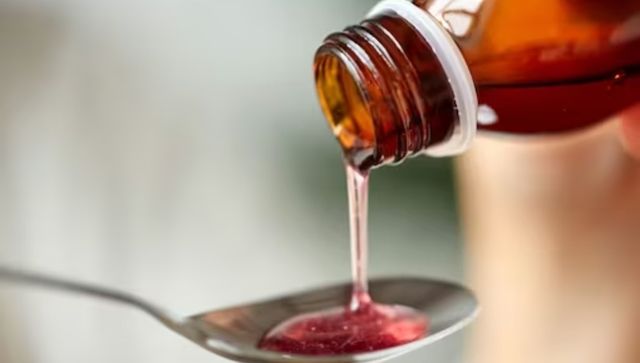India has sought a casualty status report after Uzbekistan claimed that at least 18 children died after consuming India-made medicinal syrup, as per reports. On Wednesday (28 December), Uzbekistan’s health ministry said the children who died had consumed cough syrup Doc-1 Max, manufactured by Noida-based Marion Biotech. The syrup, imported by Quramax Medical LLC, had the contaminant ethylene glycol, the ministry said in a statement. “To date, 18 out of 21 children with acute respiratory disease have died as a result of taking Doc-1 Max syrup… It was found that deceased children took 2.5-5 ml of the drug at home for 2-7 days, 3-4 times a day, which exceeds the standard dose of the drug for children. All children were given the drug without a doctor’s prescription,” Uzbekistan’s health ministry said, as per The Hindu. India’s Central Drugs Standard Control Organisation (CDSCO) has launched a probe into the allegations and the production of the cough syrup has been stopped at Marion Biotech’s Noida unit till the samples are tested, reported Indian Express. Hasan Harris, legal representative of Mario Biotech, said, “There is no problem from our end and no issue in testing. We have been there for the past ten years. Once the government report will come, we will look into it. For now the manufacturing has stopped”. This incident comes months after similar claims were made in The Gambia where the death of at least 70 children was linked to the consumption of cough and cold syrups made by Indian pharma firm Maiden Pharmaceuticals Ltd. As per the World Health Organisation (WHO), these cough syrups had “unacceptable” amounts of diethylene glycol and ethylene glycol. What is ethylene glycol being linked to the deaths of children in Uzbekistan? What has happened in The Gambia probe so far? We explain. What is ethylene glycol? Ethylene glycol is a colourless and odourless alcoholic compound that can be fatal if consumed. The sweet-tasting ethylene glycol is a syrupy or viscous liquid at room temperature, notes Pediaa.Com website. It is mostly used as an automotive antifreeze and as a raw material for manufacturing polyester fibres. It is also found in several products such as hydraulic brake fluids, stamp pad inks, ballpoint pens, solvents, paints, cosmetics and plastics, according to the Centers for Disease Control and Prevention (CDC). [caption id=“attachment_11894991” align=“alignnone” width=“640”] Graphic: Pranay Bhardwaj[/caption] Diethylene glycol and ethylene glycol are adulterants that are sometimes illegally used as solvents in liquid drugs. The Hindu notes that diethylene glycol and ethylene glycol may be used by pharma companies as an alternative to non-toxic solvents such as glycerine or propylene glycol to cut costs. How toxic is ethylene glycol The ingestion of ethylene glycol can cause severe health effects. As per CDC, central nervous system depression, nausea, vomiting, intoxication, euphoria, stupor, respiratory depression, and reduced excretion of urine can occur due to ethylene glycol intoxication. “Severe toxicity may result in coma, loss of reflexes, seizures (uncommon), and irritation of the tissues lining the brain,” the CDC adds. ALSO READ:
Another Gambia-type situation? Did 18 children in Uzbekistan die after consuming cough syrup made in India? What has Uzbekistan said? As per the Uzbekistan health ministry’s statement, preliminary laboratory results have revealed that Doc-1 Max syrup contained ethylene glycol. “This substance is toxic and about 1-2 ml/kg of a 95 per cent concentrated solution can cause serious changes in the patient’s health, such as vomiting, fainting, convulsions, cardiovascular problems and acute kidney failure,” the ministry said, as per The Hindu. Following the incident, the Central Asian nation has withdrawn the sale of tablets and syrups of Doc-1 Max from all pharmacies. [caption id=“attachment_11895031” align=“alignnone” width=“640”]
The sale of Doc-1 Max has been stopped in Uzbekistan. Image courtesy: Marion Biotech[/caption] Meanwhile, sources have told Indian Express that the Drugs Controller General of India (DCGI) has sought details on the incident from the Uzbek regulator. The WHO has also said it is in contact with Uzbek authorities and is ready to provide assistance in further probes, as per Reuters. ALSO READ:
How cough syrups can lead to deaths The Gambia incident The Gambia’s panel held Maiden Pharmaceuticals responsible for the deaths of children even as
India did not find fault with the company's cough syrup samples. A panel of the Gambian National Assembly had concluded that the death of 70 children from acute kidney injury was linked to their consumption of four contaminated syrups made by Haryana-based Maiden Pharmaceuticals, as per an Indian Express report. The select committee also recommended blacklisting the company, banning its products in the country as well as pursuing legal action against Maiden, the report added. However, earlier in December, India’s drug regulator, DCGI, said the test samples of cough syrups by Maiden did not contain diethylene glycol or ethylene glycol. Slamming the WHO, the drug regulator said a “premature link” was drawn between the deaths of children in The Gambia and the four India-made cough syrups. This came after the UN health agency had raised an alert in October linking the deaths in the African nation to Maiden’s four syrups – Promethazine Oral Solution, Kofexmalin Baby Cough Syrup, Makoff Baby Cough Syrup and Magrip N Cold Syrup. With inputs from agencies Read all the
Latest News ,
Trending News ,
Cricket News ,
Bollywood News , India News and
Entertainment News here. Follow us on
Facebook,
Twitter and
Instagram.
Uzbekistan’s health ministry has claimed India-made cough syrups contained ethylene glycol which led to the death of at least 18 children. The substance is an illegal adulterant sometimes used by companies as an alternative to non-toxic solvents such as glycerine to reduce expenses
Advertisement
End of Article


)

)
)
)
)
)
)
)
)



